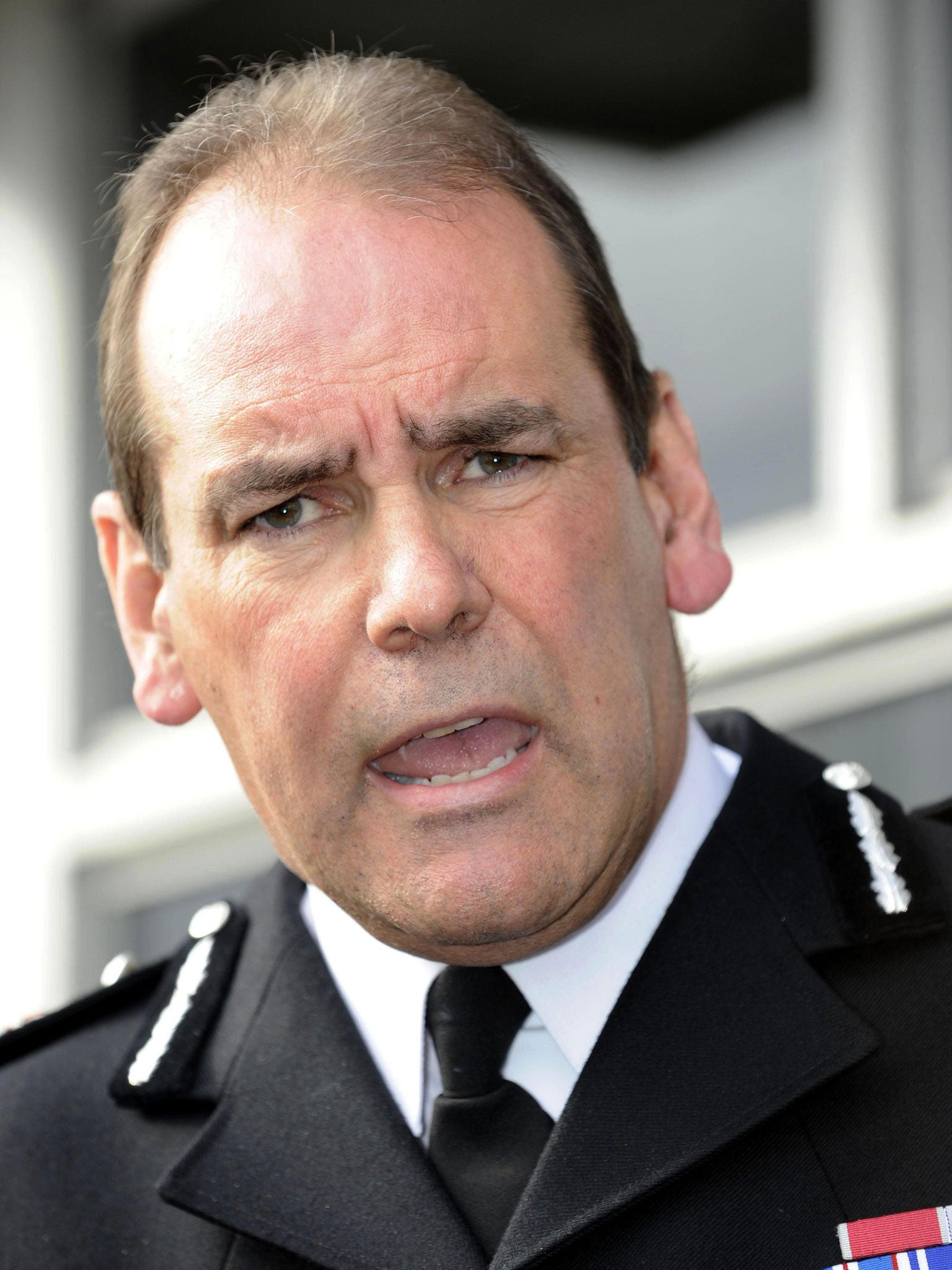Stephen Lawrence inquiry: Victim in Sir Norman Bettison ‘smear’ claims was top anti-racism campaigner
Mohammed Amran played a key part in the damning inquiry into the police handling of Stephen Lawrence’s murder

A celebrated race-relations worker whose evidence played a key part in the damning inquiry into the police handling of Stephen Lawrence’s murder has been identified as the victim of a suspected smear campaign by the former Chief Constable of West Yorkshire, Sir Norman Bettison, The Independent can reveal.
Mohammed Amran – who was honoured for his efforts in the aftermath of the 1995 Bradford riots but heavily criticised the police during his evidence to the Macpherson Inquiry in the same city three years later – has been notified of “alarming” evidence relating to him by the West Yorkshire Police Crime and Commissioner Mark Burns-Williamson.
Mr Burns-Williams, who has referred the evidence to the Independent Police Complaints Commission (IPCC), has said he has “significant concerns” about Sir Norman’s conduct when he was Assistant Chief Constable of the force. His warnings follow the emergence of documents relating to a witness – now known to be Mr Amran – who gave evidence to the inquiry when it sat in Bradford.
Mr Amran, whose reputation saw him appointed the youngest-ever Commissioner for Racial Equality in 1998, was still seeking clarification from the IPCC last night about how Sir Norman allegedly sought to discredit him.
But the IPCC is understood to have told police forces that they will not investigate any such allegations for two weeks, until all police forces have had the opportunity to submit reports.
Mr Amran’s dismay that Sir Norman might have attempted to influence the way his testimony to Macpherson was received is compounded by the fact that he was a lay adviser to the the National Policing Improvement Agency when Sir Norman was its chief executive.
“If he had anything to say about me, he had the chance to say them there and then,” Mr Amran said last night. “We talked regularly. I was advising the Agency on diversity and equality. The Commissioner has told me that the information which has been referred has severely discredited me. I am waiting to learn more about what has been said.”
Mr Amran, 37, was decorated with an honorary Bradford University degree in 2002 for his work in promoting social cohesion after the riots which scarred the city. Of Pakistani birth, he set up the Young Peoples’ Forum in the year of the disturbances and worked with British Asian communities and on the predominantly white estates, in an attempt to promote harmony. He was appointed as the youngest ever Commissioner for Racial Equality in 1998, at the age of 22.
But despite his burgeoning reputation, there has been evidence in the past of attempts to discredit him, at a time when he was openly challenging the police’s work in race relations.
He alleges that he was arrested on scores of occasions – though never charged with an offence – before becoming aware that West Yorkshire Police had been involved in compiling a dossier of evidence which it submitted to the then Commission for Racial Equality chairman Gurbux Singh, urging the Commission not to reappoint him.
Mr Amran successfully sued West Yorkshire Police for racial discrimination. The force settled out of court by making a payment to charity and Mr Amran received a formal apology from the force’s then Chief Constable the late Colin Cramphorn.
Mr Amran provided an hour’s evidence, as a representative of the Kirklees Racial Equality Council, when Lord Macpherson arrived in Bradford as part of the regional sittings, which followed the London hearing into the death of Stephen Lawrence. Lord Macpherson subsequently criticised the West Yorkshire force for its role in the lead up to the Bradford riots of 1995.
Sir Norman had said after the riots: “Young people are rising up as much against their own elders and society as against the police. The police are simply the anvil on which the youth are beating out their frustration and anger, and they seem to be alienated from every part of society.”
But the Bradford Commission, which examined events leading up to the disturbances, blamed insensitive and heavy-handed policing when officers tried to arrest youths who, they claimed, had sworn at them. When a crowd gathered round a police station calling for the release of the youths they were met by officers wearing riot gear. At the height of the violence more than 300 people had taken to the streets.
Ms Bundey had last night requisitioned a copy of the dossier in which the West Yorkshire force allegedly discredited Mr Amran, which formed a significant part of the successful race discrimination case. “The Commissioner’s office are seriously alarmed by what appear to be attempts to influence Mr Amran’s evidence,” Ms Bundey said. “We are trying with utmost urgency to establish details of the referral to offer him some reassurance.”
Bettison has not yet responded to the allegations which the IPCC are now investigating.
Subscribe to Independent Premium to bookmark this article
Want to bookmark your favourite articles and stories to read or reference later? Start your Independent Premium subscription today.
